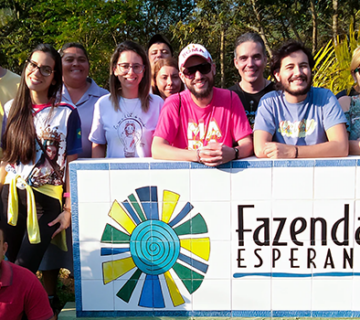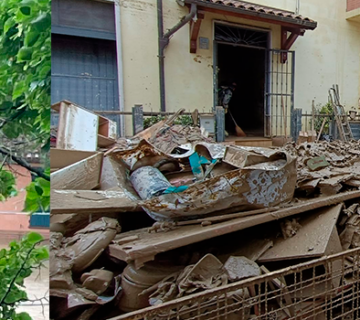 No society can survive without justice; and yet for society it is even more important to have charity, which goes beyond justice without destroying it. Justice founds society, charity nurtures it; one is the brain, the other is the heart; one is the skeleton, the other is the blood.
No society can survive without justice; and yet for society it is even more important to have charity, which goes beyond justice without destroying it. Justice founds society, charity nurtures it; one is the brain, the other is the heart; one is the skeleton, the other is the blood.
Rome with its law became highly developed in the evolution of civilization: give to each what belongs to each. But it did not reach Christ, who says: give to the others also what is your own.
Justice says: do not rob others’ things. Charity suggests: give your things to those who need them. That is, with justice we give to others what is theirs; with charity we give them also what is ours.
Hence it is not only the re-establishment of a pre-existing or presupposed equilibrium, but its growth and betterment, going towards an equity that law does not achieve. An employer who gives to a worker the payment agreed upon, remains within the bounds of justice; but if, in addition to a salary insufficient to keep a family, more were given than had been agreed upon, then the employer would enter into charity. It does not take away; but it adds. In law, as it has been codified and understood, you can die starved and abandoned. But not in charity: so long as there is someone who eats and lives, such persons give their own bread and also their help to others. And if the force of justice coldly keeps people in their place, like things in a pigeon-hole, the force of charity binds them together in a family-like solidarity, smashing divisive cliques and circulating warmth and smiles.
A spreading and cohesive force, richer and more nurturing than justice, charity is not content to keep persons in their place in the world. It tends to make a place in the world for everyone – a family – always open and ready to recreate the source of life and hope.
Therefore, while justice has been represented with scales in hand and blindfolded eyes, charity has its eyes wide open to see also where the gaze of the distracted and the happy does not penetrate. And it does not measure what it gives, and offers, with open hands, without thinking too much about what is deserved by the person – the brother or sister – it is giving to.
This service, this doing all one can for one’s brothers and sisters, this handing over to them our goods, our energy and our lifeblood, to the extent that our life becomes their life, usually, in Christian identification, is a service given, through our brothers and sisters, to Christ himself. And because of the reversibility of the Mystical Body, it is a service, the most the true, the most outstanding, that we give to ourselves. The father serves his children, the citizen servers the community, the priest serves the faithful, the one who commands serves the one who obeys, and so on; and we are all served by Christ who gives his life for all.
This love is born within the order of grace. But it does not stop there. We are Christians, we are brothers and sisters, we are in the Church, always. Hence every society, civil and economic too, if composed of Christians, is included in this circle of the divine, and gains from it. Living by charity simplifies one’s own human problems and helps in solving the eternal problems.
This is charity seen as the great social virtue. And Christ is a debtor who pays a hundred to one. He can give eternity for modest – perhaps even soiled – bill of credit.
La società cristiana, Città Nuova: Rome, 2010, pp.98-101.


 Italiano
Italiano Español
Español Français
Français Português
Português


